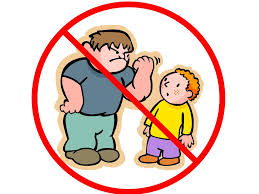by James Burns | Apr 3, 2018 | Bully Proof Classroom, Effective and Efficient, James Burns
When you are an effective teacher, your teaching takes hold, and your students slowly but surely learn from you, and the learning is permanent. Remember, too much too fast won’t last. It is much better to spend 10 days teaching one skill that your students will be able to use for a lifetime, than teaching 10 different skills in 10 days that your students will forget the day after you taught them. The problem that you may be faced with is being expected to move quickly through an overly ambitious curriculum. If you have the sense that your students have not grasped a concept, then spend more time on it.
When you are efficient, you have the ability to take care of the day to day administrative paperwork that seems to be never ending such as attendance, grading papers, your grade book, your lesson plans, etc. in an efficient manner. Administrative items must be dealt with efficiently so that you are freed up to teach. Understanding the difference between being effective and being efficient will help you understand what is important and what you need to devote their time to.
Characteristics of Effective Teachers
- Effective teachers have mastered their subject, are well read, and can answer questions spontaneously about what they teach.
- When the effective teacher lectures, he or she is well prepared and can carry on a discussion in an orderly manner
- Effective teachers can relate their subject area to real life circumstances and offers practical illustrations to enhance student understanding
- Effective teachers know how to check for understanding. They encourage students’ questions and opinions.
- The effective teacher is enthusiastic about his/her subject area and communicates this to his/her students.
- The effective teacher is approachable, friendly, and makes himself/herself available to his or her students after school hours.
- Effective teacher are concerned about their students’ and places a high priority on their achievement.
- The effective teacher has a sense of humor and knows how to motivate his/her students will humorous stories and appropriate jokes.
- The effective teacher displays warmth, and kindness, and does his or her best to understand student circumstances that may interfere with their academic success.
- The effective teacher knows how to use their resources and is not afraid to ask for help when needed.
CHARACTERISTICS OF EFFICIENT TEACHERS
- The efficient teacher understands and is sensitive to administrative timelines.
- The efficient teacher understands the policies and procedures of the school.
- Efficient teachers have daily routines for completing lunch counts, taking attendance, and grading work, and recording of grades.
- The efficient teacher makes time to call parents and schedules meeting with administration and other teachers as needed.
- Teachers, who are efficient, have procedures in place to manage supplies such as pencils, paper, and other non-teaching items.
- The efficient teacher keeps a neat and orderly work environment.
- Teachers who are efficient set goals for the entire school year, and plan their objectives for each lesson on a weekly basis.
- The teacher, who is efficient, knows how they are going to handle problems with students, parents, administration, and other teachers before they happen.
- The efficient teacher knows how to cut through red tape and does his/her job regardless of any outside circumstance that may interfere with student learning.
- The efficient teacher is concerned with teaching and takes responsibility for the academic success of his or her students.
The Behavior Management Toolbox
by James Burns | Mar 19, 2018 | Anti Bullying 101, Bully Proof Classroom, James Burns
 The past is the past, right? Wrong. The past can and will dictate the future if we allow ourselves to be measured based on our failures rather than our successes. Let’s face it. We all have failed or fallen short from time to time. Just because we have failed does not mean we are a failure. It just means we did the best with what we knew at the time. Parents can do this once they take a look at the lifestyle or the behavior of their grown children. If you are a parent, take heart: you did your best with the information you had in the process of raising your children. If you are a teacher and have had your share of problems and headaches and feel like the funds are low and the debts are high, don’t look back. Don’t drive while looking in the rear view mirror; you will hit a future tree. Gandhi once said, “Be the change we wish to see in the world.” What changes do you want? A kinder and gentler place for kids to come, have fun, and learn? Realize that you are the one that has the capacity to facilitate the change. Have you goofed up in the past? So what? The past is the past, so please don’t ever let it remind you of what you are now. Let the past remind you of what the future holds when you finally let go.
The past is the past, right? Wrong. The past can and will dictate the future if we allow ourselves to be measured based on our failures rather than our successes. Let’s face it. We all have failed or fallen short from time to time. Just because we have failed does not mean we are a failure. It just means we did the best with what we knew at the time. Parents can do this once they take a look at the lifestyle or the behavior of their grown children. If you are a parent, take heart: you did your best with the information you had in the process of raising your children. If you are a teacher and have had your share of problems and headaches and feel like the funds are low and the debts are high, don’t look back. Don’t drive while looking in the rear view mirror; you will hit a future tree. Gandhi once said, “Be the change we wish to see in the world.” What changes do you want? A kinder and gentler place for kids to come, have fun, and learn? Realize that you are the one that has the capacity to facilitate the change. Have you goofed up in the past? So what? The past is the past, so please don’t ever let it remind you of what you are now. Let the past remind you of what the future holds when you finally let go.
by James Burns | Mar 18, 2018 | Anti Bullying, Anti Bullying 101, Anti Bullying Tips, Bully Proof Classroom, James Burns
 It is always nice to receive compliments, but sometimes we need to ask ourselves, “how free are we with compliments toward others?” Teachers as a group can be very stingy with complimenting other teachers. It is as if teachers think that by complimenting another teacher, they will be diminishing their own worth. Get into the habit of paying a professional compliment to someone each day. We all need to be affirmed and recognized for our efforts. Just think about how good you feel when someone pays you a compliment, and give another teacher the opportunity to experience the same good feeling. How does this help stop bullying? It is all in the example and attitudes we set. Our students will notice and be freer with compliments themselves.
It is always nice to receive compliments, but sometimes we need to ask ourselves, “how free are we with compliments toward others?” Teachers as a group can be very stingy with complimenting other teachers. It is as if teachers think that by complimenting another teacher, they will be diminishing their own worth. Get into the habit of paying a professional compliment to someone each day. We all need to be affirmed and recognized for our efforts. Just think about how good you feel when someone pays you a compliment, and give another teacher the opportunity to experience the same good feeling. How does this help stop bullying? It is all in the example and attitudes we set. Our students will notice and be freer with compliments themselves.
by James Burns | Mar 16, 2018 | Anti Bullying, Anti Bullying Tips, Bully Proof Classroom, James Burns, Uncategorized
Don’t Be An Easy Target
10 great tips that can be used with kids grades 3-8. Read them to the kids or let them read them themselves. These tips will help kids think, cope, and make common sense choices when it comes down to bully proofing themselves.

Click On The Image To Learn More
by James Burns | Mar 15, 2018 | Bully Proof Classroom, Dealing with Angry And Irate Parents
 This doesn’t mean you should start an argument. It means that when a bullying parent has a concern, as unrealistic as it might be; let them know that their concern is your concern. If they come in and are agitated, meet their intensity with your own intensity. When they present a problem to you respond with something like “I am so happy you made me aware of this. Now let’s work together to straighten things out,” parents can be reactive, argumentative, and angry. They may lack the social and emotional equity to deal with issues that are placed in front of them by their own child. They rely on the responses that they have learned from others through observation, and many of the behaviors that they exhibit are part of their own intergenerational tendencies.
This doesn’t mean you should start an argument. It means that when a bullying parent has a concern, as unrealistic as it might be; let them know that their concern is your concern. If they come in and are agitated, meet their intensity with your own intensity. When they present a problem to you respond with something like “I am so happy you made me aware of this. Now let’s work together to straighten things out,” parents can be reactive, argumentative, and angry. They may lack the social and emotional equity to deal with issues that are placed in front of them by their own child. They rely on the responses that they have learned from others through observation, and many of the behaviors that they exhibit are part of their own intergenerational tendencies.
[ecwid_product id=”117516101″ display=”picture title price options addtobag” version=”2″ show_border=”1″ show_price_on_button=”1″ center_align=”1″]
by James Burns | Mar 10, 2018 | Behavior Management, Bully Proof Classroom, Parents
 When kids are unhappy about something that happens in school and they believe that the teacher was the culprit, they will usually go home and complain to mom or dad. If the parents are weak, and are in a position of being intimidated by their own children, they will usually go to the school and argue for their child. Why? Because they can win the argument with the school, but they will always lose the argument with their own kid. I experienced this once: a child bullying his mother in my office. My response to the kid was, “don’t bully your mother in my office.” When this was said, the mom felt she now had an ally and became more assertive with her son. Husbands and wives may disrespect each other in the home in front of the children. Sometimes children will become one of the parents’ confidants and will have to listen to complaints about one parent or the other. Anytime you have an opportunity to stick up for or defend a parent when they are being bullied by their own child in your presence, do it. You will make a new friend, and your disciplining of that child will be easier going forward.
When kids are unhappy about something that happens in school and they believe that the teacher was the culprit, they will usually go home and complain to mom or dad. If the parents are weak, and are in a position of being intimidated by their own children, they will usually go to the school and argue for their child. Why? Because they can win the argument with the school, but they will always lose the argument with their own kid. I experienced this once: a child bullying his mother in my office. My response to the kid was, “don’t bully your mother in my office.” When this was said, the mom felt she now had an ally and became more assertive with her son. Husbands and wives may disrespect each other in the home in front of the children. Sometimes children will become one of the parents’ confidants and will have to listen to complaints about one parent or the other. Anytime you have an opportunity to stick up for or defend a parent when they are being bullied by their own child in your presence, do it. You will make a new friend, and your disciplining of that child will be easier going forward.










